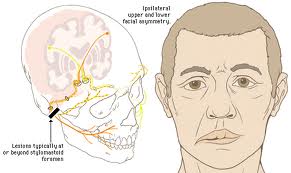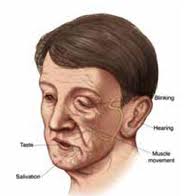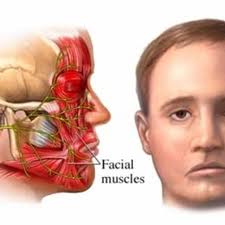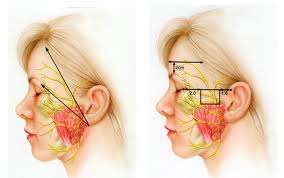Bell’s palsy or Facial paralysis
Facial paralysis also called as Bell’s palsy, is a condition where paralysis of one side of the face happens. Bell’s palsy is a self resolving condition having partial or complete weakness of the facial muscles. Usually one side of the face is affected. The condition affects men and women alike, has no age bar and has no particular affinity for any one side of the face
Two hundred years ago, Sir Charles Bell first detailed a condition which causes weakness or paralysis of the facial muscles and the disease condition is named after him.
One in every 65 people will suffer from Bell’s palsy once in their lifetime. It is the most common disorder affecting just one nerve (mononeuropathy) making it most common cause of acute facial paralysis.
Symptoms
Symptoms range in severity from mild weakness to total paralysis. They include:
|
|
Facial distortion can be quite significant in Bell’s palsy.
Causes of Bell’s Palsy:
The exact cause remains unknown. However, some of the following factors could cause or trigger Bell’s palsy:
- Viral infections: Herpes Simplex Virus-1 (HSV-1) is a virus considered causing 70% of all Bell’s palsy.
- Lyme Disease (a bacterial infection transmitted by tick-bites)
- Trauma or injury to facial nerve.
Complications
If you suspect Bell’s palsy, its best to seek medical attention immediately.
In majority of cases, the prognosis is very good. Complete facial paralysis or starting medications very late are commonly associated with complications.
- Permanent contractures and spasms of the facial muscles
- Persistent loss in taste sensations
- Chronic eye (corneal) infections
- ‘Crocodile tear syndrome’ in which tears are involuntarily shed while eating
Homeopathic treatment:
Good news is that most people with Bell’s palsy recover completely within 3 to 9 months. Yet, the most important factor in treatment is to eliminate the source of the condition.
Homeopathic treatment has known antiviral activity. It is also targeted towards healing of nerve damage in case of traumatic cases of Bell’s palsy. Some of the commonly indicated medicines are Causticum, Arnica, Hypercicum, Mezerium, Belladanona. There are more than 25 possible medicines to choose from, depending on the exact cause and symptoms.
Homeopathic treatment helps for rapid recovery of bell’s palsy.





